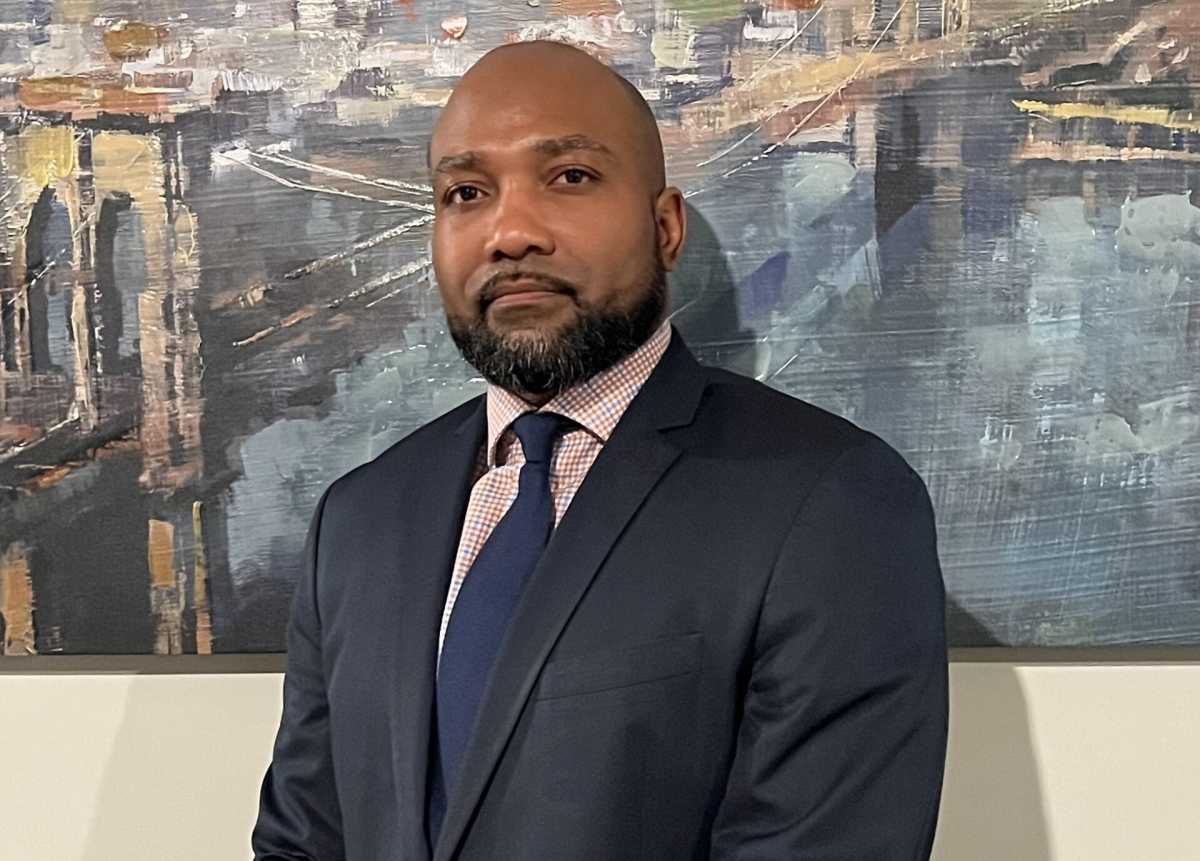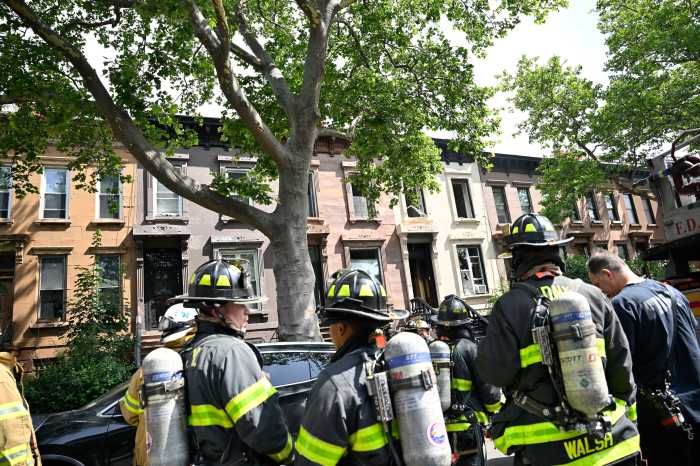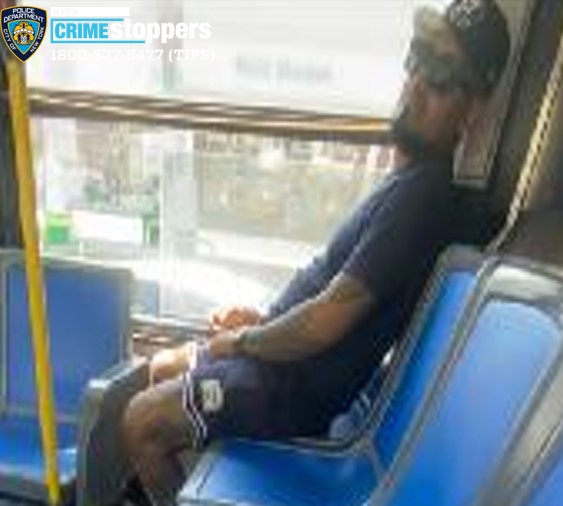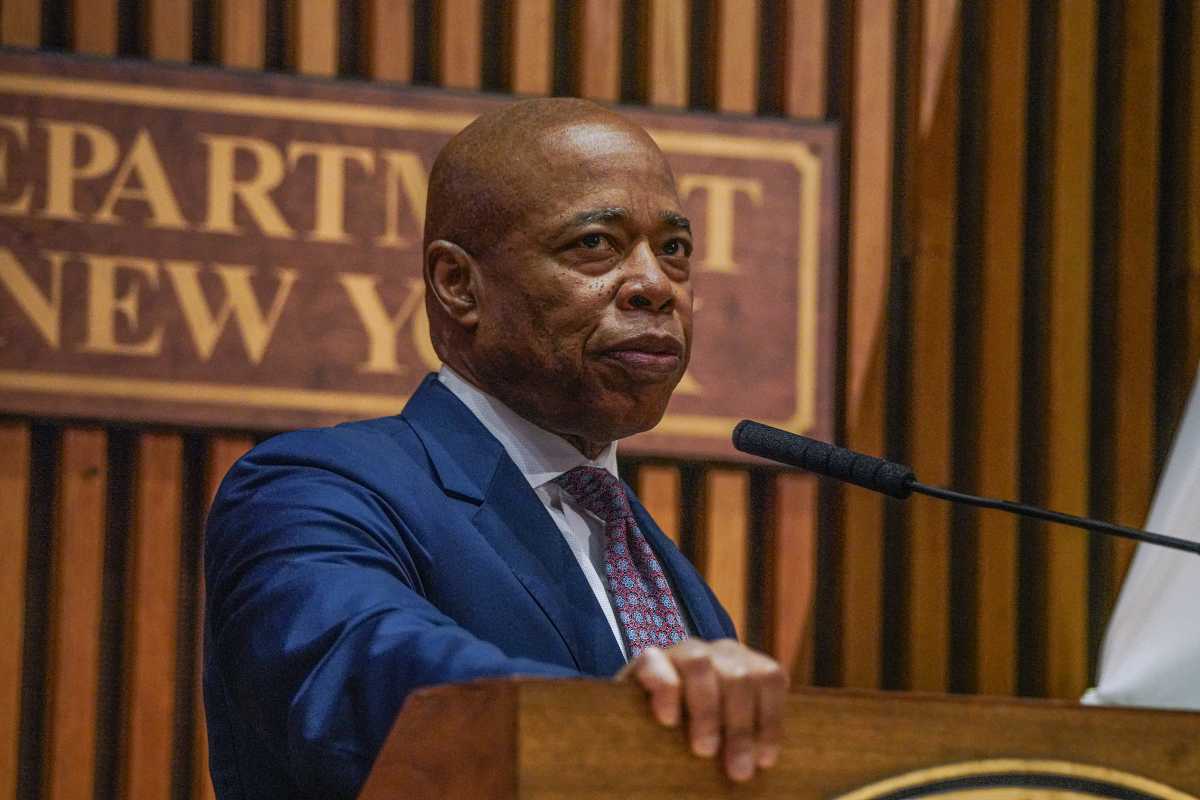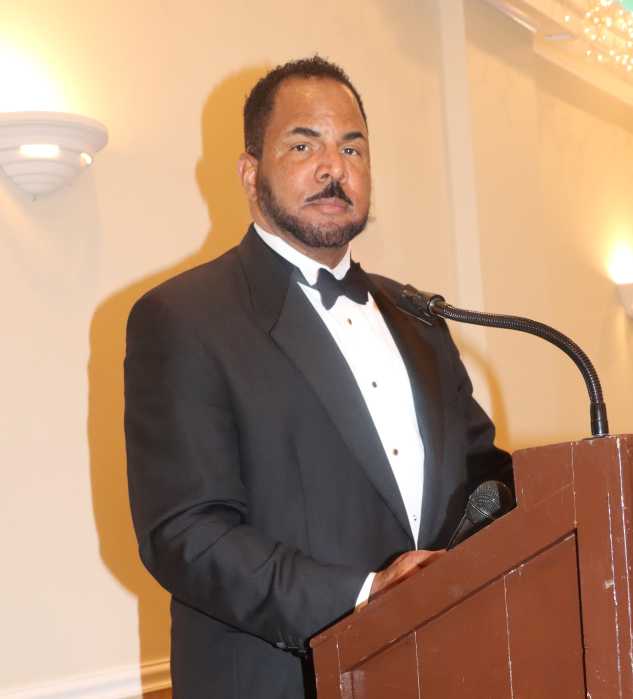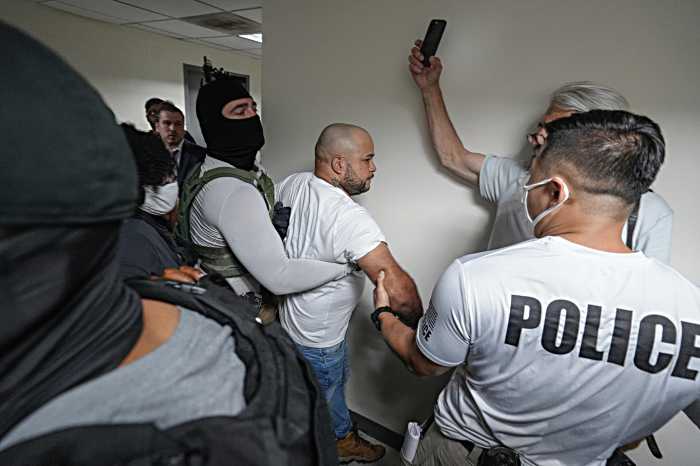Brooklyn District Attorney Eric Gonzalez announced Thursday that his office is moving to vacate the wrongful manslaughter conviction of a man found guilty in 1996 in a case of mistaken identity.
Steven Ruffin was just 18 when he was wrongfully convicted of the murder of a 16-year-old, as determined by a comprehensive investigation conducted by the DA’s Conviction Review Unit (CRU), which revealed that Ruffin’s defense team had failed to present crucial evidence proving another individual’s responsibility for the killing during the trial.
Ruffin served nearly 14 years in prison before he was paroled in 2010.
“After a full investigation by my Conviction Review Unit, we can no longer stand by this old conviction and will move to give Mr. Ruffin his good name back,” Gonzalez said in a statement on Jan. 18. “A confluence of factors, including errors by defense counsel and tunnel vision by law enforcement, produced a tragic result in this case – Mr. Ruffin was convicted for the actions of a different person whom he claimed to be the killer all along. We will continue to correct miscarriages of justice and to learn from the mistakes we uncover to ensure that they never happen again.”
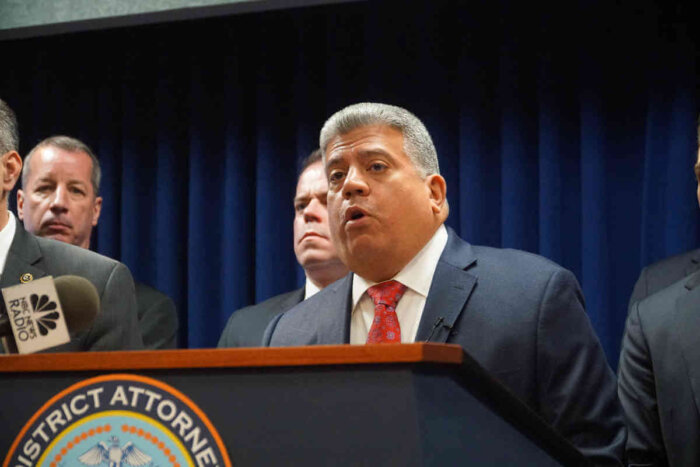
In 1996, then-17-year-old high school student Ruffin was living with his family in Crown Heights. On the night of Feb. 6, Ruffin’s sister Diana, a college freshman, was assaulted on her walk home. She told her family members and her then-boyfriend what had happened and all of them set out to canvas the neighborhood for the perpetrator.
Eventually, several members of the group encountered the victim, James Deligney, and his sister. A confrontation occurred with Deligney being shot and killed during the altercation.
Despite continuing to maintain that he’d remained slightly behind the group with his sister when shots rang out — and despite several eyewitnesses identifying Diana’s boyfriend as the shooter during the trial — police began an investigation into Ruffin, after receiving an anonymous tip that he was the gunman.
In a particularly egregious move, NYPD detectives took the victim’s sister to sit outside of Ruffin’s family home five days following the shooting to see if she was able to identify him as the shooter.
When she was unable to do so, detectives threw Ruffin to the ground anyway, cuffing him before bringing him to the victim’s sister for identification. Only at that point was she able to make an identification — under heavy duress.
Ruffin was then taken to a local station, where he was interrogated by Detective Louis N. Scarcella who Gonzalez says used a number of extremely questionable interrogation tactics to eventually get Ruffin to falsely confess to the crime, including bringing in Ruffin’s estranged police officer father to pressure him.
Scarcella has been involved in over a dozen wrongful conviction cases, coercing false confessions of innocent individuals — some who have spent numerous decades in incarceration and costing taxpayers over $110 million in subsequent settlements.
Ruffin immediately recanted his false confession and, during his trial, testified that he had remained with his sister behind the group that was involved in the shooting — a claim which was substantiated by numerous eye witnesses, two of whom claimed that Ruffin’s sister’s boyfriend was the one responsible.
Attorneys at the Legal Aid Society along with Ruffin’s pro bono counsel Garrett Ordower unearthed numerous pieces of evidence and witness accounts which proved Ruffin’s innocence, including statements from the actual perpetrator of the crime to others expressing his guilt. According to Legal Aid, the perpetrator at one point had even begun to search for his own legal counsel in relation to the crime and only stopped pursuing representation when he discovered that he was not being investigated by police, as they were investigating Ruffin instead.
Now, nearly 28 years to the day since his arrest, Ruffin is having his name cleared.
“I lost 14 years of my life for a crime I didn’t commit, and today will help me to move on from that chapter of my life, cleared of any wrongdoing,” said Ruffin. “I want to thank my family for their unwavering support and for helping me to build back my life after prison. I also want to thank my legal team — Garrett Ordower and The Legal Aid Society’s Ted Hausman – for believing in my innocence and for never giving up, and District Attorney Gonzalez for helping to exonerate me.”
With his record being vacated, Ruffin’s attorney Ordower and Legal Aid acknowledged that nothing would make up for the time their client lost, but that this was a formal step in setting the facts straight.
“Nearly three decades after our client Steven Ruffin’s wrongful conviction, he has today finally seen some vindication for his treatment by the criminal justice system,” said Ordower. “Steven has faced this injustice with extraordinary grace and dignity and I am honored to have been able to help him clear his name. I want to thank all those who supported this effort, and especially DA Gonzalez and CRU Chief Charlie Linehan and ADA Bruce Alderman, who approached this case with an open mind and a willingness to start making things right.”



